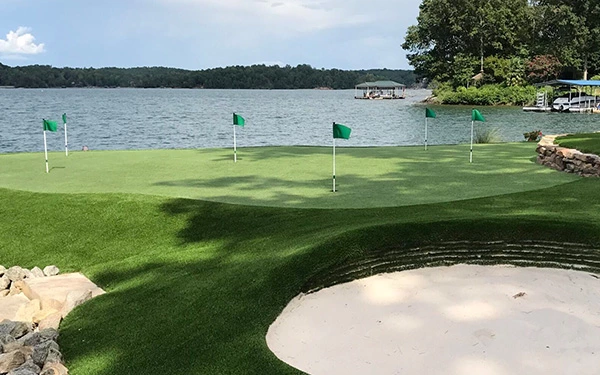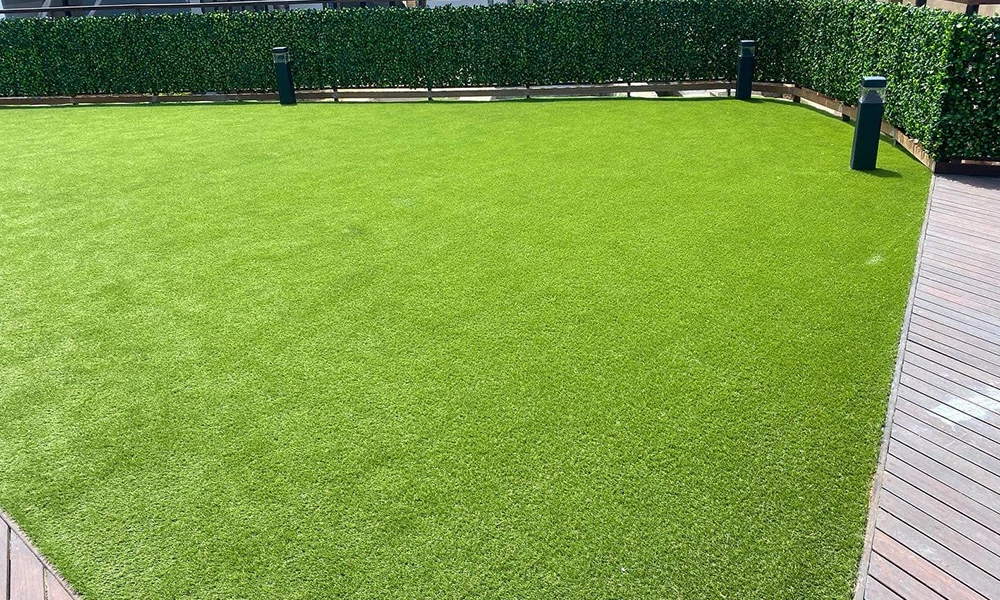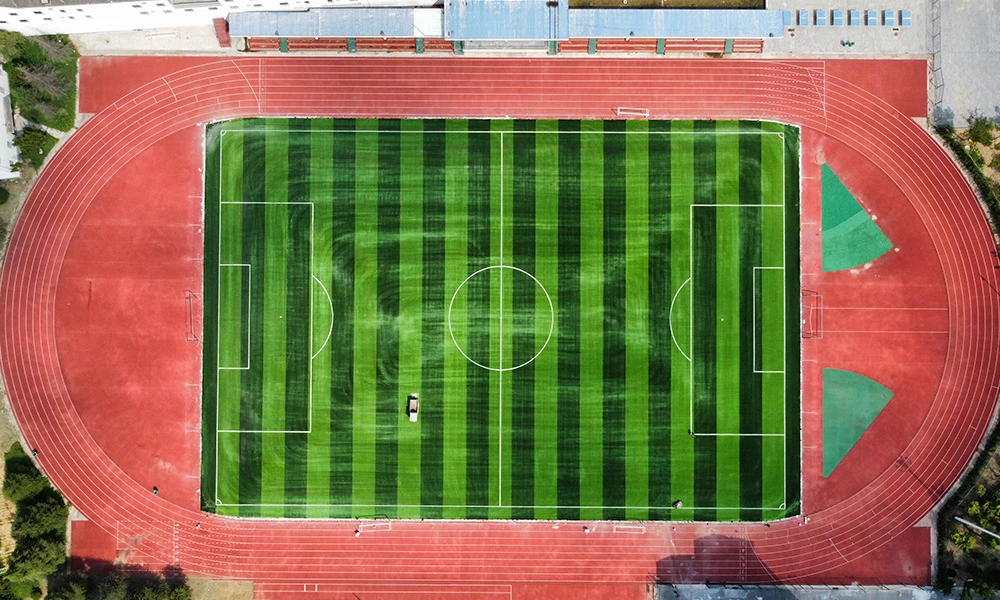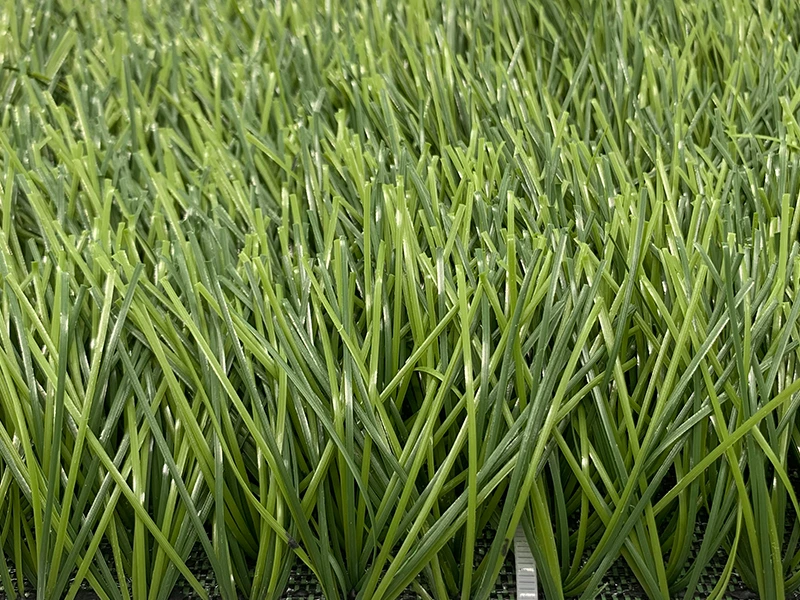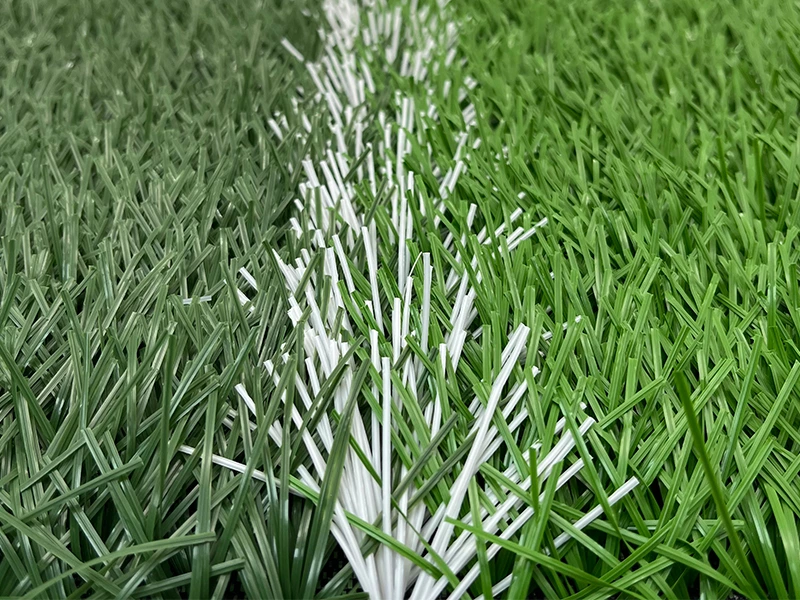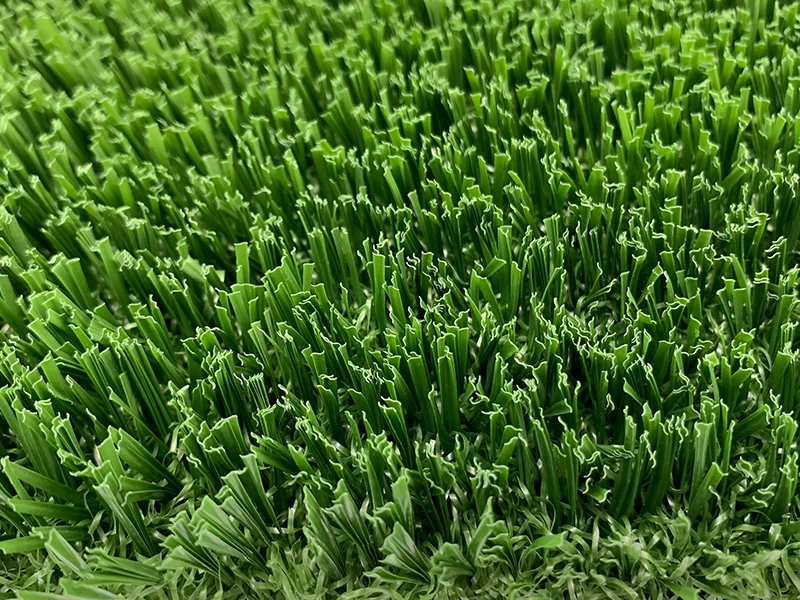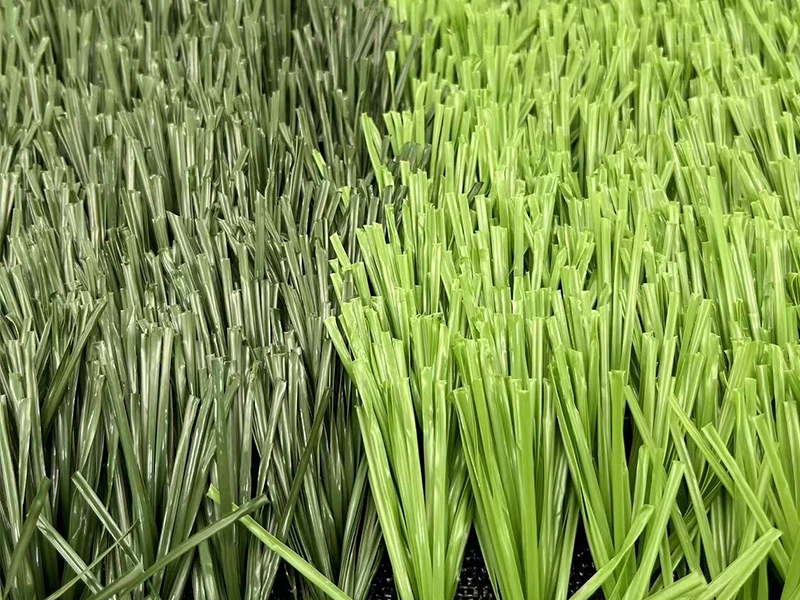Why do golf courses use artificial grass?
The artificial grass used on golf courses is mainly synthetic turf, also known as synthetic turf or artificial turf. This type of turf is made from a synthetic fiber material, usually polyethylene or polypropylene. The use of synthetic turf on golf courses has become a common choice because of its many advantages.
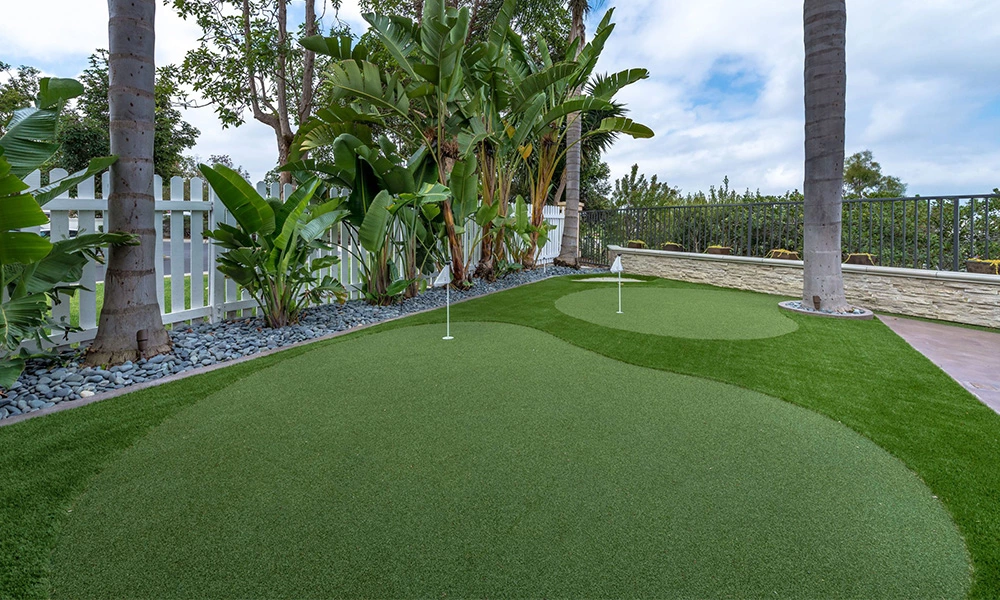
Excellent appearance and performance
Synthetic turf has consistent quality and appearance, so the overall appearance of the course remains consistent no matter the season or weather conditions. This allows players to enjoy a high-quality course experience at all times, regardless of the weather. In contrast, natural lawns are susceptible to climate and seasonal changes and require regular maintenance and mowing to stay in good condition.
Low maintenance and economical cost
Synthetic turf has lower maintenance costs. Compared to natural lawns, synthetic lawns do not require regular watering, mowing and fertilizing. This reduces the time and labor costs required for maintenance, allowing golf courses to operate more cost-effectively.
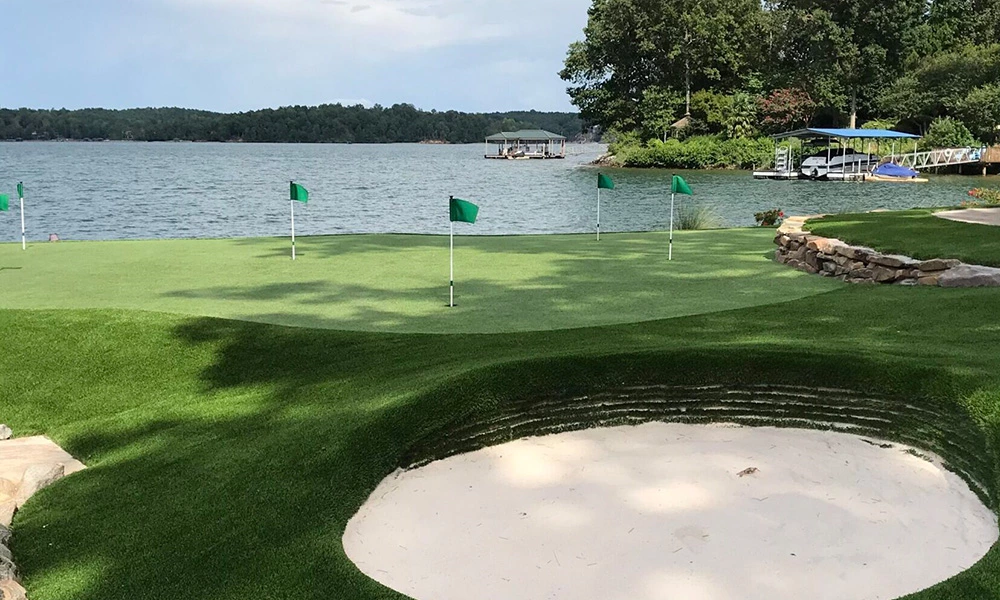
Long lifespan and good gaming experience
Synthetic turf also has a longer lifespan. They can withstand more use and pressure and are less prone to wear and deformation. This means the course can provide a high-quality gaming experience for longer without the need for frequent turf replacement, further saving on maintenance costs.
Reduce pollution and protect the environment
Synthetic turf is environmentally friendly. They do not require the use of chemical fertilizers and pesticides, reducing pollution to soil and water resources. Additionally, because synthetic lawns do not require regular mowing, they reduce the use of fossil fuels and lower carbon emissions.
Ideal for golf courses, synthetic turf offers many benefits including consistent appearance, low maintenance, long life and environmental protection. As technology continues to advance, synthetic turf will continue to play an important role on golf courses and become one of the mainstream choices for future course construction.
